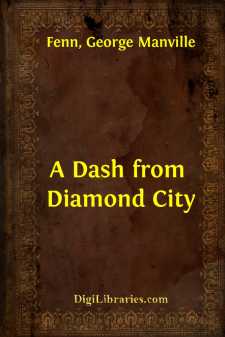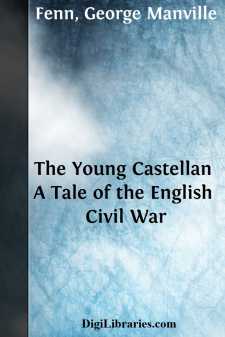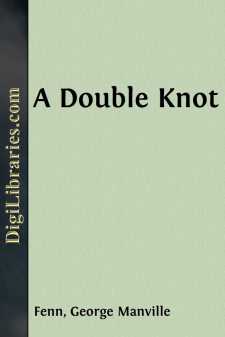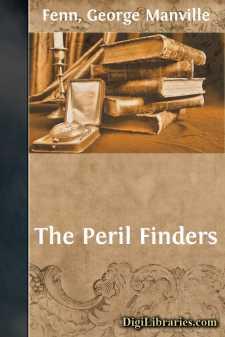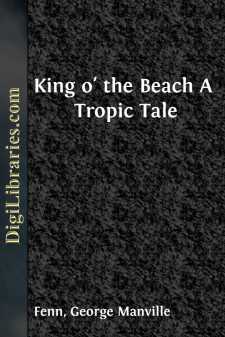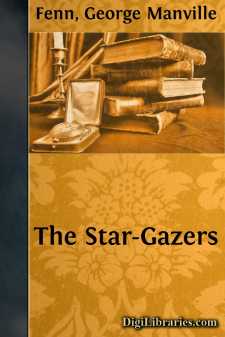Categories
- Antiques & Collectibles 13
- Architecture 36
- Art 48
- Bibles 22
- Biography & Autobiography 813
- Body, Mind & Spirit 142
- Business & Economics 28
- Children's Books 13
- Children's Fiction 10
- Computers 4
- Cooking 94
- Crafts & Hobbies 4
- Drama 346
- Education 46
- Family & Relationships 57
- Fiction 11828
- Games 19
- Gardening 17
- Health & Fitness 34
- History 1377
- House & Home 1
- Humor 147
- Juvenile Fiction 1873
- Juvenile Nonfiction 202
- Language Arts & Disciplines 88
- Law 16
- Literary Collections 686
- Literary Criticism 179
- Mathematics 13
- Medical 41
- Music 40
- Nature 179
- Non-Classifiable 1768
- Performing Arts 7
- Periodicals 1453
- Philosophy 64
- Photography 2
- Poetry 896
- Political Science 203
- Psychology 42
- Reference 154
- Religion 513
- Science 126
- Self-Help 84
- Social Science 81
- Sports & Recreation 34
- Study Aids 3
- Technology & Engineering 59
- Transportation 23
- Travel 463
- True Crime 29
A Dash from Diamond City
Categories:
Description:
Excerpt
Three White Ones.
Tick, tap, tap—tap, ticker—ticker—tapper—tapper; tick—teck, tacker—tap went a typewriting machine, and scratch—scratch went two pens, in one of the minor offices connected with that vast wealth-producing industry known as the De Beers Diamond-Mines, where, seated at desk and table, three young men were hard at work, one manipulating the typewriter, one writing a letter, and the third making entries in a fat leather-covered book with broad bands and a big letter distinguishing it upon the back.
The words: “minor office in a diamond-mine,” naturally suggest wealth, Turkey carpets, french-polished furniture, and plate-glass; but the office in question was an example of simplicity, for its walls were mud and its roof corrugated-iron, while the roughness of the interior was only slightly softened down by a lining of what a carpenter calls matchboarding. In spite of its vast wealth, Kimberley is still little better than a moving camp, and holds out few prospects of ever becoming a magnificent town.
The interior of that newly-created office, allowing for the tapping of the typewriter and the scratching of the pens, was very quiet; but outside there was the strange sound produced by the mingling of voices with trampling feet and the distant whirr and rattle of machinery, till a clock began striking, followed by the clangour of a bell, and then all was changed.
“Time!” shouted the manipulator of the typewriter, springing from his stool to stretch his wiry six feet of length, at the same time spoiling a keen, manly face by distorting it with a yawn. The clerk who had been bending over the thick account-book ceased making entries, applied the blotting-paper, and closed the book with a bang, to turn round and display a pink-and-white, fat, smooth face, disfigured by nearly white eyebrows and lashes and curly whitey-brown hair. As he stood up he yawned and wrinkled his fat face a good deal; but the wrinkles died down into a smile which gave him a meek and mild appearance, the said smile being doubled directly after by his taking a little round shaving-glass out of his desk, propping it up by means of a contrivance behind, and then, by the help of a pocket-comb, proceeding to rearrange his hair, which, from the resistance offered, appeared to be full of knots and kinks.
The last to leave his desk was a manly-looking young fellow who appeared to be twenty, but who possessed documentary evidence that he was only eighteen. He neither stretched nor yawned, but drew himself up with a sigh of relief, and, after carefully locking up the letters he had written, he turned to the typist.
“Going out, Ingleborough?” he said.
“Yes; I shan’t be long. I must go on to the compound. Back in—”
“Five minutes?” dashed in his questioner.
“No; that I shan’t,” said the young man smartly; “but I will not exceed fifteen. Get out my rifle and belts, West.”
“All right,” was the reply, and as the door closed the young clerk crossed to a plain deal cupboard in the corner of the office, threw open the broad door, and revealed an arms-rack with some twenty of the newest-pattern rifles standing ready for use, and bayonets and bandoliers to match each breech-loading piece....


